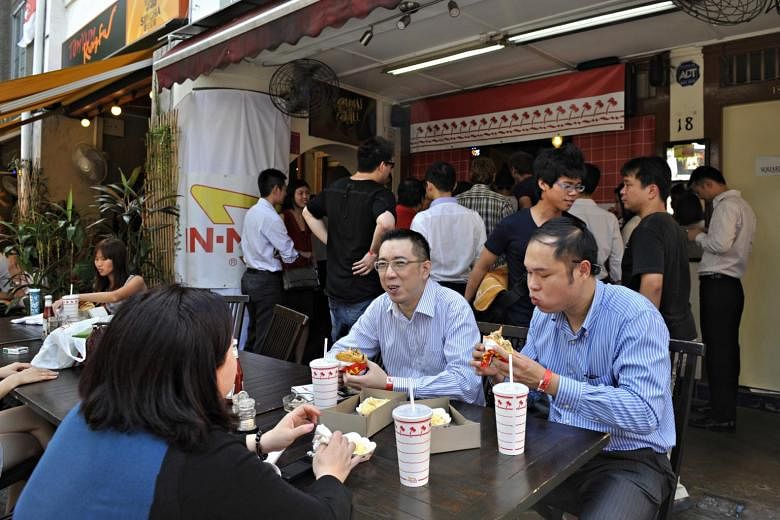Singaporeans have been eating more and more over the past two decades - but why?
According to the experts, much of it boils down to people being spoilt for choice and opting for convenience over health.
In other words, people are more likely to grab dessert or a snack between meals, just because they can.
Busy lifestyles also mean that many eat out, or opt for easy-to-prepare processed food, which is typically higher in calories.
In the 1998 edition of the National Nutrition Survey, the Health Promotion Board found that people in Singapore consumed an average of 2,062 calories a day. By 2010, this figure had gone up to 2,624.
More alarmingly, the same study found that 59 per cent of Singaporeans exceeded their daily recommended calorie intake in 2010, up from 34 per cent in 1998.
It is typically recommended that men consume no more than 2,200 calories a day. The corresponding limit for women is 1,800.
But what is it about lifestyles and environments that have changed over the past 20 years?
First, said Professor Jeyakumar Henry, Singaporeans are increasingly surrounded by a diverse plethora of food - and that can make them want to eat more.
The science behind this phenomenon is known as sensory specific satiety, where a person gets "desensitised" to a certain taste but quickly regains his appetite once he is served something new - for example, dessert.
"If you repeatedly eat the same food, you get tired of it," said Prof Henry, head of the Clinical Nutrition Research Centre. "But in Singapore, we have the fortune of having increasing access to diverse foods, and food variety always increases food intake."
Many people also opt for takeaway or processed food like nuggets and hot dogs without realising how many extra calories they consume by doing so. Such food tends to be more calorie-dense because of the amounts of fat, sugar or salt used to make it tastier.
"When such food is consumed, there is an increase in calories without an increase in the amount of food per se," explained Dr Tham Kwang Wei, director of the Lifestyle Improvement and Fitness Enhancement Centre at the Singapore General Hospital.
Mr Louis Yap, a dietitian at Parkway East Hospital, added that many people also do not know that they need less as they grow older.
"As we age, the required amount of calories is reduced as our metabolism drops. People may continue to eat as they did when they were younger, which may result in gradual weight gain."
The good news is, keeping within your daily limits does not necessarily mean calculating the caloric value of every bite. It can simply mean having the discipline to forgo dessert or refrain from snacking.
For example, if hunger pangs strike before a meal, do not give in, said Dr Ang Poon Liat, a consultant paediatrician at Thomson Paediatric Centre.
"Eat only if you are hungry, and stop eating when you feel satisfied, not full," he said. "If hunger pangs surge before the defined meal time, go for a brief walk or drink a glass of water."



